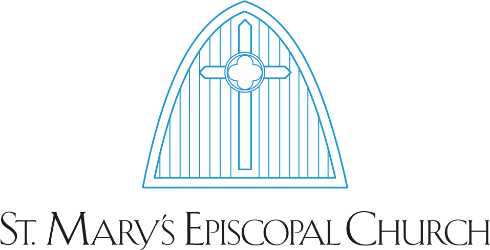A Sermon for the Fifteenth Sunday after Pentecost
Today we are back in the Gospel according to Mark (7:1-8,14-15,21-23) after spending August in the Gospel according to John. And we will remain in Mark all the way forward into the fall (except for All Saints’ Sunday and Christ the King Sunday in November).
We drop into a scene of controversy in Mark: Jesus and the pharisees. Mark is a gospel of few words (none of those long looping monologues and dialogues we find in John): the gospel invites us to get right to the heart of the matter, which is … the human heart.
The pharisees represent the religious establishment. They focus on compliance with rules and regulations.
(Now I assure you that I am for rules and regulations. For example, I am glad for traffic lights, speed limits, and parking lot lines. I value the principle of the rule of law. And the law of fashion: Gentlemen, according to that law and the tradition of our fathers, today is the last Sunday to wear seersucker.)
But Jesus challenges the pharisees to focus less on behavior and compliance and conformity. He wants them to look inward, to go deep inside to the region of the heart.
What is the heart? Biblically speaking, the writings of the Old Testament and New Testament understand the heart to be the origin and source of our intentions. The biblical understanding of the heart is mind and will. Mind is located in the heart (that’s where our thoughts reside). The will is our capacity for choice: we choose this path, or another; we choose right and wrong.
According to the holy scriptures, a wholehearted person is one that knows and does what is right and good.
But of course, we may have divided hearts: we may know what is the right thing to do, but we don’t do it. We might be afraid of doing the right thing, which might be a hard thing.
If our hearts are divided, we might go through the motions and make a show of doing right. But if we do so, we might feel like a fraud or a phony, and we might be called a hypocrite—a person who puts on a mask, makes a show of things. We fear the charge of hypocrisy
To tell the truth, we are all prone to hypocrisy (someone once said that if a preacher wants to find an example of a hypocrite, he should look in the mirror). We are especially prone to that mildest and most common form of hypocrisy: pretending everything is okay, that we’re fine, that there’s nothing amiss, no pain or suffering or inner turmoil or struggle.
God desires that we become whole people, wholehearted people—people whose lips and lives align, so that we walk the talk, so that we are loving the Lord our God with all our heart, all our mind, all our strength; and loving our neighbor as we love ourselves. We want to be loving people, not withholding our love or only begrudgingly or partly sharing love.
Here’s the payoff to being the wholehearted person that God desires us to be: To be a whole person means that we go into the world with courage to face our challenges and make the most of our opportunities; and then to return enriched, all the better, because we took the risk of following our hearts.
How do we get to the heart?
Often circumstances and seasons in life bring the heart closer to the surface. Last week I ministered with a young, engaged couple, who were preparing to exchange their marriage vows (they were married at this altar yesterday); and I ministered with a mature married couple in a hospital room, waiting for a very serious surgery, who were living into the meaning of their vows— “in sickness and in health.” Both couples were so very vulnerable, aware of their hearts, eager to speak truly from the hearts, deeply desiring to be wholeheartedly devoted to their partners.
Sometimes people tell me they are cold hearted: “I’m mean as a snake, I have a heart of stone.” But I’m skeptical of such claims. I haven’t met anyone who doesn’t have a heart. In fact, their hearts are hurting, and they’re doing their best not to be vulnerable by showing their hurts. But with patience and acceptance, such a person will usually in time show their hearts.
How do we become wholehearted? How do we heal our hearts?
Maybe one place to start is to show more of oneself to another person, to someone who is a good listener and wise counselor. Who knows your weaknesses and insecurities and struggles? Whom can you tell of your desire to heal, to grow into wholeheartedness?
Religion is another resource. I have heard people say, “I am spiritual, not religious.” I dare say, I am spiritual and religious. I believe in the practices and disciplines of our Christian faith: reading the scriptures, saying the prayers, sharing in the sacraments, enjoying Christian fellowship, keeping the Baptismal Covenant, witnessing to my Christian faith, working for justice and peace, respecting the dignity of every human being … all the means of grace, which constitute the practice of the Christian religion. And I recommend them wholeheartedly to you.
In our desire to become wholehearted the good news is that it is also God’s great desire that we be whole people. God takes pleasure in our desire to become whole and to seek the healing our broken and divided hearts. God gives us the grace of Jesus Christ, gospel medicine, for healing our hurts and making lives whole and giving us hearts to love. Thanks be to God. Amen.
The Rev. Gregory Bezilla
